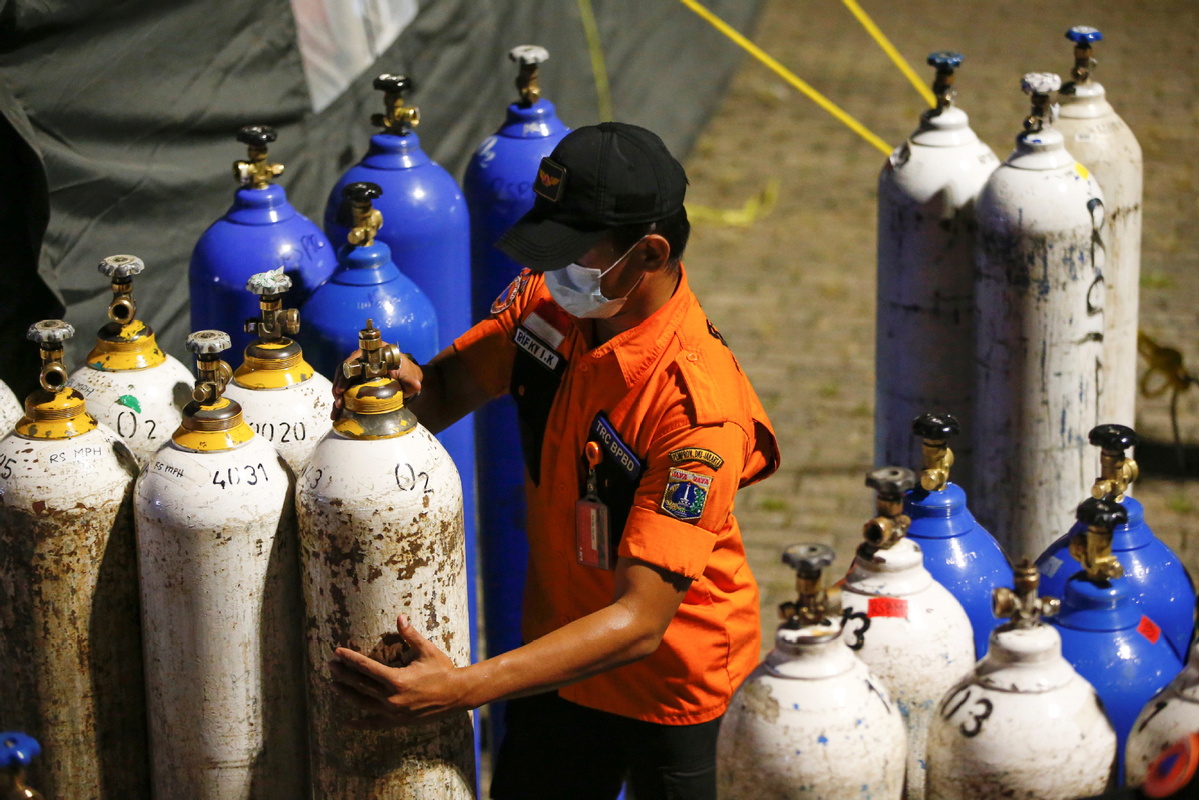Indonesia battles outbreak with stringent measures
By PRIME SARMIENTO in Hong Kong | CHINA DAILY | Updated: 2021-07-07 09:53

Indonesia has implemented stricter movement restrictions and sped up mass testing and vaccinations in a bid to effectively stem a worsening pandemic arising from the Delta variant of the COVID-19 virus.
President Joko Widodo enforced emergency community activity restrictions starting from Saturday, as the country battles one of the world's worst COVID-19 outbreaks. Mosques, restaurants, shopping malls, stadiums, parks, schools and offices across the islands of Java and Bali will be shuttered until July 20 to curb the soaring number of cases.
Java, Indonesia's biggest island, and the resort island of Bali are home to more than half of the country's population of 270 million.
The spread of the more contagious Delta variant has spiked the number of infections in Indonesia, with the total caseload hitting over 2.2 million. According to World Health Organization data, the number of new cases per day averaged at over 20,000 in the past few weeks and hit a record of 29,745 cases on Monday.
Riris Andono Ahmad, director of the Center for Tropical Medicine at the Gadjah Mada University, said the enforcement of mobility restrictions can reduce the rapid spread of the coronavirus.
"People must stay at home, work from home, learn from home and observe religious activities from home. Crowding must be prohibited," he said.
Dicky Budiman, epidemiologist at Australia's Griffith University, said the third quarter is a critical time in Indonesia's pandemic journey.
"If we don't respond to this situation in a serious way, we will lose many lives," Budiman said.
Inoculation target
He cited how the skyrocketing cases have strained the public health system, with most hospitals in Java reaching full capacity. But he said movement restrictions need to be accompanied by mass testing, with authorities testing at least 500,000 people each day.
He also said health authorities need to vaccinate at least 2 million Indonesians a day to achieve herd immunity as soon as possible.
Indonesia's vaccination program was launched in January with the aim of inoculating 181.5 million people this year. But as of Sunday, only 32 million people have received their first jab. A total of 14 million people have gotten their second dose.
The president hopes to speed up the pace of vaccinations, with the goal of inoculating 1 million people per day within the month and having 2 million people vaccinated each day in August.
By the end of June, Indonesia has received a total of 118.7 million doses of vaccines, with nearly 90 percent of the shipment coming from China's Sinovac Biotech. The country has also received supplies from Chinese pharmaceutical company Sinopharm as well as the global COVAX facility backed by the World Health Organization.
Leonardus Jegho in Jakarta contributed to this story.























